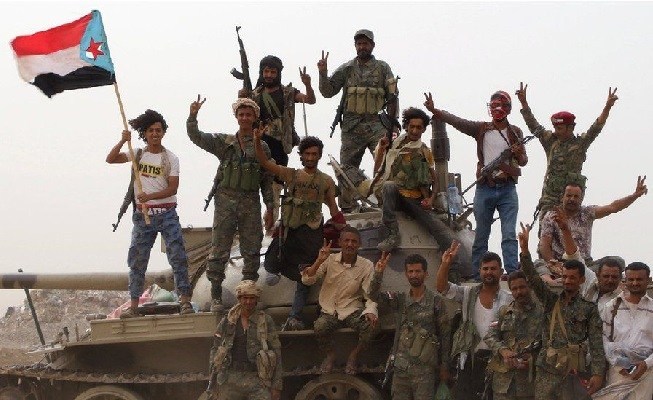Sana’a … News Time
The crisis has become more serious for the Yemeni government, where in the south of the country after the Houthi rebels, the rebels announced the end of the unity and peace agreement, while the Saudi-led coalition rejected the announcement. The Southern Transitional Council (STC) has accused the government of failing to perform its duties and conspiring against southern affairs, AFP reported. The STC blamed the government for not implementing the peace agreement and announced the formation of an independent government, which has been formally launched. According to the newspaper, the Yemeni government condemned the move and said that those working for independence in the south would be responsible for the devastating and dangerous consequences. The split in the Saudi-led coalition fighting the Houthi rebels was largely due to the coronavirus announcing a unilateral ceasefire with the Houthi rebels by an internationally recognized government, which the Houthi rebels rejected.
It may be recalled that the Yemeni government and the STC alliance had serious differences last year, but due to the efforts of the United Arab Emirates and the Saudi government, a peace agreement was reached between the two sides in Riyadh. The STC took control of Aden, Yemen’s second-largest city, in August last year, which has been described as a civil war. The agreement reached in the Saudi capital soon became ineffective due to the failure of the southern rebels to have an equal share in the government and the reorganization of the army. According to the report, the STC had announced in its statement that it was forming a government in the southern regions, which would begin on the night of April 25, 2020. The statement said an independent committee would begin work in light of orders issued by the council’s presidency. Reports from Aden residents say a heavy contingent of STC forces has been deployed in the city. Rebel sources said they had set up checkpoints at all government offices, including the central bank and the port of Aden. The city of Aden has long queues of vehicles with STC flags, but politically the whole of the southern region is tenser. Because other cities have refused to recognize their sovereignty and have asked to stay connected with the government. Yemeni Foreign Minister Mohammed al-Hadrami said the move by the STC was a continuation of the armed uprising that had been going on since last August and the rejection of the Riyadh agreement.
Fighting between the government and Houthi rebels in Yemen has killed more than 10,000 civilians over the past five years, with the first case of coronavirus reported earlier this month in the area of Hadhrat Muwat, a southern rebel stronghold the affected area. In addition to fears of a coronavirus outbreak in the country, floods this month have killed at least 21 civilians and destroyed many homes and roads in Aden. The STC has the support of the United Arab Emirates, while the United Arab Emirates, like the rebels, has a strong stance against the Muslim Brotherhood and the Yemeni Brotherhood’s Jamaat-ul-Islah, which is represented in the recognized government.
Saudi coalition rejects declaration of independence:
The Saudi-led coalition fighting Houthi rebels in Yemen has rejected a declaration of an independent government by rebels in the south. According to the AFP news agency, the allies said that after the astonishing declaration of state emergency by the STC, we once again call for the implementation of the Riyadh agreement. The allies said in a statement that they demanded an end to the sabotage and a return to the agreement.
It may be recalled that there were bloody clashes between the government and the STC in August last year and the STC forces had taken control of Aden by ousting the coalition forces. Coalition forces set up a base in Aden in February 2015, when President Abdul Rabbi Hadi arrived in Sanaa from the Houthi rebel stronghold. The occupation war in southern Yemen also opened the floodgates of the Saudi alliance as Saudi Arabia supported the Yemeni government while the United Arab Emirates supported the STC. Later, the agreement reached in Riyadh was welcomed, which halted the complete partition of Yemen and was considered the best way to end the widespread civil war in Yemen. However, the differences soon escalated when there were complaints of food shortages in the south, a devaluation of the currency and a lack of funds for the salaries of government employees.




